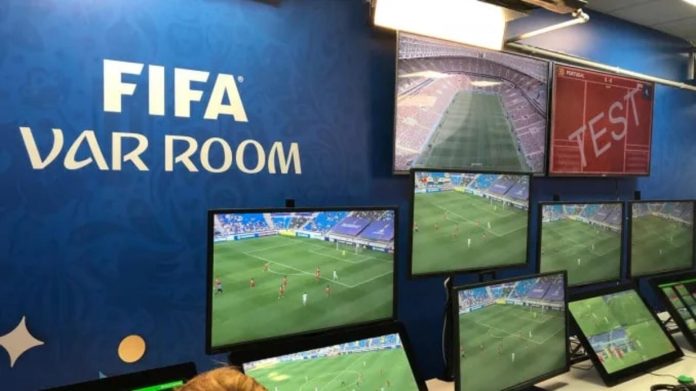The introduction of the Video Assistant Referee (VAR) system has significantly altered the landscape of modern football. As technology becomes more embedded in sports, VAR represents a major step forward in terms of ensuring fairness and accuracy in officiating. While its implementation has been widely debated, the system has undeniably become an integral part of the game, influencing the way football is played, watched, and analyzed.
VAR was introduced to address one of the most controversial aspects of football: refereeing decisions. Human error has always been a part of the game, and referees, despite their experience and training, can make mistakes that impact the outcome of matches. Penalty decisions, red cards, offside calls, and goals ruled out for infractions have all sparked heated debates among players, coaches, and fans. VAR was introduced to provide an additional layer of support to referees, allowing them to review key moments and make more informed decisions.
The system works by having a team of video referees monitor the game from a central location, using multiple camera angles to assess incidents in real time. If the on-field referee makes a decision that could be reviewed, or if they miss a crucial event, the VAR team can intervene and suggest a review. The referee then consults the video footage to either uphold or overturn the original decision. This process is designed to ensure that critical moments are given careful consideration, reducing the likelihood of mistakes.
One of the most prominent changes brought by VAR is its impact on offside decisions. In the past, linesmen had to make split-second judgments, often missing marginal offsides by inches. Now, with the help of technology, VAR can determine the exact positioning of players with precise accuracy. The introduction of offside lines and advanced camera tracking ensures that offside calls are based on factual data rather than subjective human judgment. This has eliminated much of the guesswork associated with such decisions, leading to greater consistency across competitions.

Another area where VAR has had a significant impact is in penalty decisions. Penalty calls are often some of the most contentious in football, and VAR gives referees the opportunity to review these incidents from multiple angles. Whether a foul occurred inside or outside the penalty area, whether there was sufficient contact, or whether the attacking player simulated a fall can now be scrutinized in detail. This additional level of analysis has resulted in fewer incorrect penalty calls, although it has also led to some extended pauses in the game, a point of contention among fans.
While VAR has improved accuracy, it has also fundamentally changed the rhythm and flow of the game. Football is known for its continuous action, and the introduction of VAR has brought new stoppages. Each time a decision is reviewed, there is a pause in play, which can interrupt the momentum of both teams and create tension among the crowd. Critics of VAR argue that these delays detract from the excitement of the game, with some fans feeling that the spontaneous joy of celebrating a goal has been diminished by the uncertainty of whether the goal will stand after a VAR review.
In addition to affecting the flow of the game, VAR has also shifted the way teams approach certain situations. Players are more cautious in the penalty area, aware that any contact could be reviewed and result in a penalty. Similarly, defenders are more conscious of their positioning when it comes to potential offside traps, knowing that even the smallest infraction could be detected by VAR. These tactical adjustments have influenced the way football is played, as teams adapt to the new dynamics introduced by the technology.
The debate surrounding VAR’s impact on the spirit of the game continues to evolve. Some purists argue that the human element of refereeing, including the possibility of mistakes, is an essential part of football’s charm. Others maintain that the pursuit of fairness and accuracy justifies the use of technology, even if it means altering the traditional dynamics of the sport. However, it’s clear that VAR has already had a lasting effect on modern football, and its role in the game is unlikely to diminish.
VAR has also changed the way fans engage with the sport. Television broadcasts now include detailed replays of controversial incidents, with commentators and analysts breaking down VAR decisions in real time. This added layer of scrutiny has given fans more insight into the decision-making process, but it has also sparked debates over the interpretation of the rules. While VAR aims to make decisions more transparent, it has also introduced new complexities, particularly in situations where the rules themselves may be ambiguous.
As VAR continues to evolve, so too does its impact on football. Leagues around the world have made adjustments to the system in response to feedback from players, coaches, and fans. Some competitions have introduced guidelines to limit the number of reviews, while others have focused on improving the communication between referees and the VAR team to reduce delays. Despite its flaws, VAR represents a step forward in the pursuit of fairness, and its ongoing refinement will likely address some of the concerns raised since its introduction.
In conclusion, the introduction of VAR has undeniably transformed the landscape of modern football. While it has led to greater accuracy and fairness in officiating, it has also brought new challenges, particularly in terms of maintaining the flow and spontaneity of the game. As football continues to embrace technology, VAR will likely remain a fixture, shaping the future of the sport for years to come.
